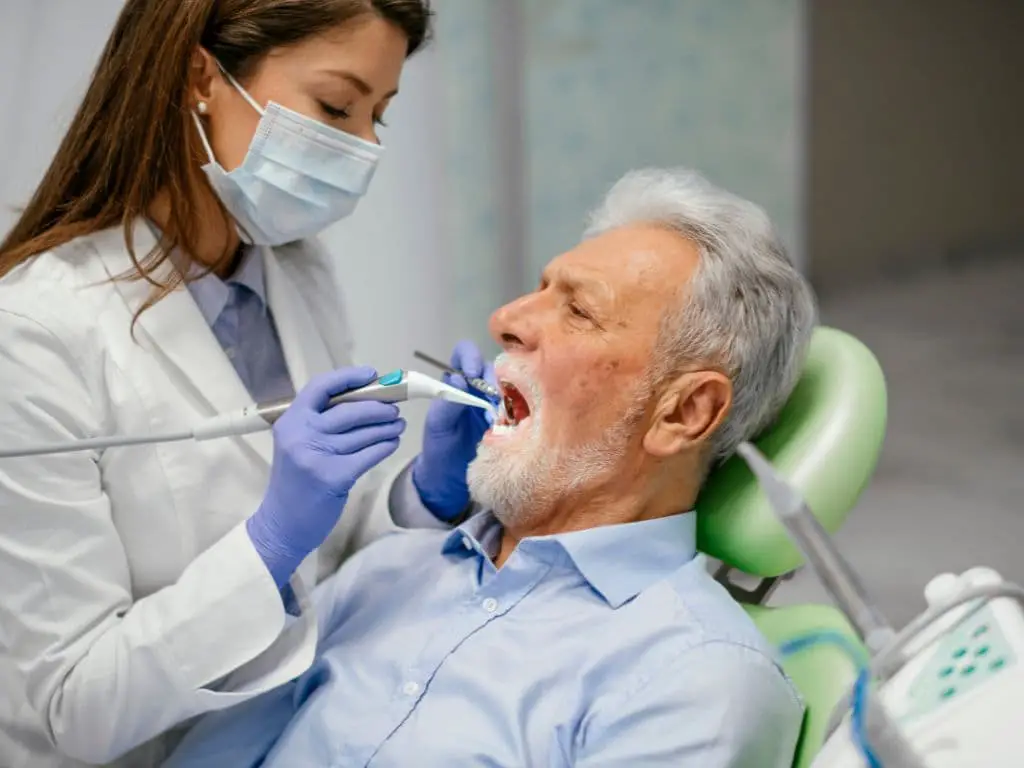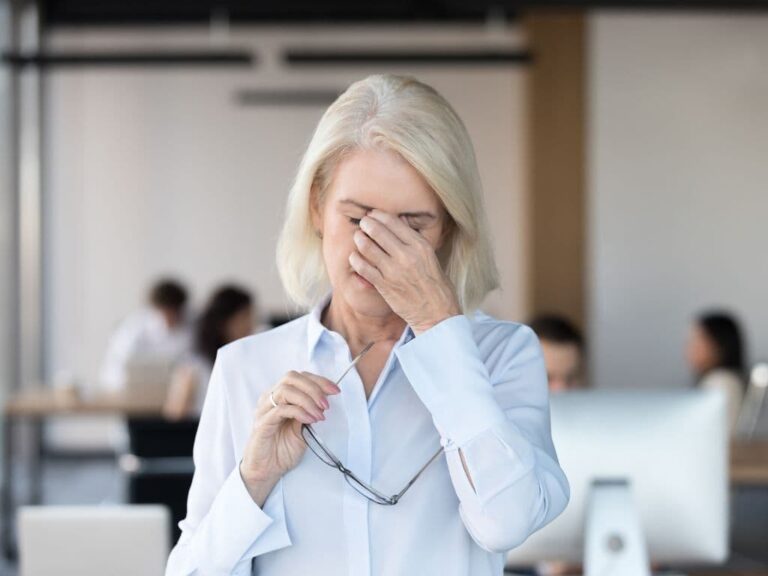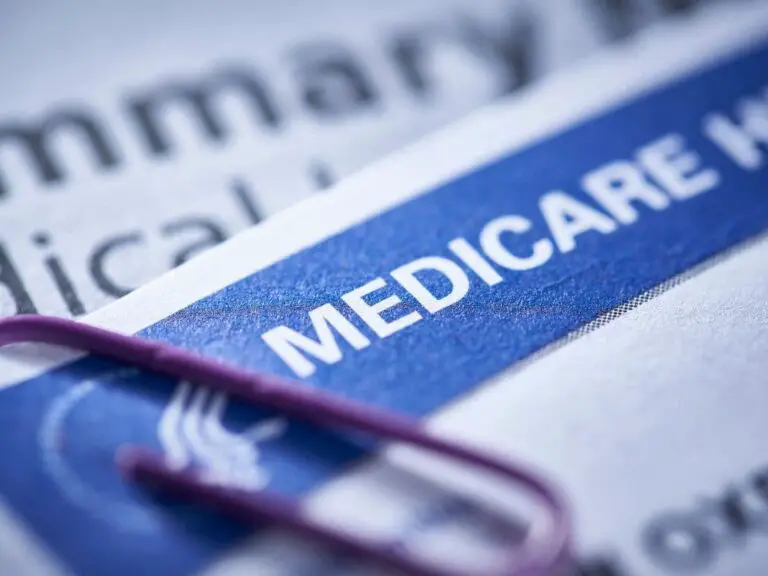How Often Should Seniors Have Their Teeth Cleaned?
Regular dental cleanings and exams are crucial for seniors to maintain good oral health. Proper dental care can prevent many oral health problems that are common in older adults like gum disease, cavities, and tooth loss.
But how often should seniors visit the dentist for a cleaning and checkup?
Seniors should have their teeth professionally cleaned by a dentist every six months, as recommended by the American Dental Association. However, depending on an individual’s oral health status and risk factors, such as gum health, medical conditions, medications, lifestyle, and any dental work, more frequent cleanings every 3 to 6 months may be necessary.
It’s important for seniors to consult with their dentist to determine the ideal cleaning schedule based on their specific circumstances.

Here is a comprehensive guide on the recommended frequency of dental visits for seniors, what to expect during cleanings, and tips for keeping teeth and gums healthy.
Why is Regular Dental Cleaning Important for Seniors?
Oral health has a significant impact on overall health and quality of life. Poor oral hygiene can lead to painful dental problems and infections that may cause issues in other parts of the body. Older adults are at higher risk for certain oral health conditions, which makes regular dental care essential.
Here are some of the key reasons seniors should get their teeth professionally cleaned and examined on a regular basis:
- Prevents gum disease: Gum disease, also called periodontal disease, affects over 65% of seniors. Regular cleanings allow the dentist to remove plaque and tartar from above and below the gumline to prevent inflammation, infection, and bone loss from gum disease.
- Detects cavities and tooth decay: Cavities and decay are detected early through dental x-rays and exams. Early treatment prevents further destruction of tooth structure from decay.
- Removes stains and plaque buildup: Daily brushing and flossing at home is not enough to fully remove plaque below the gumline or stains on the tooth surface. Professional cleanings reach areas that are difficult to keep clean at home.
- Monitors overall health: Dentists can detect signs of nutritional deficiencies, oral cancer, diabetes, osteoporosis, and other systemic diseases during routine exams of the mouth and teeth. Early disease detection from dental visits can improve treatment outcomes.
- Maintains quality of life: Keeping natural teeth and a healthy mouth allows seniors to enjoy eating, speaking, and social interactions without embarrassment or discomfort. Good oral health means better overall health and quality of life.
It is safe for seniors to go to the dentist, and regular dental visits are highly recommended for maintaining oral health. Dental professionals perform important preventative treatments, detect oral health issues early on, and offer tailored advice for specific senior oral health concerns.
Essential procedures are designed to be gentle and pain-free, and offices comply with high standards of hygiene and safety to accommodate seniors’ health needs and risk factors.
How Often Should Seniors Have Their Teeth Cleaned and What Factors Affect This?
The American Dental Association and most dentists recommend seniors have professional dental cleanings every 6 months. However, some seniors may need cleanings more or less frequently based on their individual oral health status and risk factors. Key factors dentists consider are:
- Gum health: Those with moderate to advanced gum disease need more frequent cleanings, often every 3 to 4 months. Mild gum disease may need cleanings every 4 to 6 months.
- Medical conditions: Seniors with conditions like diabetes, rheumatoid arthritis, or low immunity may need 3 to 4 month cleaning intervals due to higher infection risks.
- Medications: Certain medications can cause dry mouth or gum overgrowth, increasing risks. More frequent cleanings every 3 to 6 months may be recommended.
- Diet/lifestyle: Tobacco use, poor nutrition, and inadequate oral hygiene at home put seniors at higher risk of oral health problems, needing more cleanings.
- Dental work: Implants, bridges, dentures, braces, and other dental work can trap more plaque and food, needing professional cleanings every 3 to 6 months.
| Oral Health Status | Recommended Cleaning Frequency |
|---|---|
| Good gum health, low risk | Every 6 months |
| Moderate gum disease | Every 4 months |
| Advanced gum disease | Every 3 months |
| Higher risk due to medical conditions, medications, or lifestyle | Every 3-6 months |
| Extensive dental work | Every 3-6 months |
So in summary, every 6 months is the standard recommendation for seniors’ dental cleanings. But seniors should discuss their specific risk factors and needs with their dentist to determine the ideal cleaning schedule.
What Should Seniors Expect During a Dental Cleaning?
Dental cleanings are quick, painless procedures to remove plaque and tartar from teeth. Here are the typical steps seniors can expect during a routine cleaning appointment:
- Medical history review: The hygienist will review medical conditions, medications, and any changes since the last visit. This helps customize treatment.
- Oral cancer screening: The dentist checks for signs of oral cancer inside the cheeks, on the tongue, lips, and throat.
- Plaque and tartar removal: The hygienist thoroughly scales and polishes above and below the gumline to remove sticky plaque and hardened tartar. An ultrasonic device is often used.
- Tooth surface polishing: A gritty toothpaste is used with a polishing cup to remove surface stains and create a smooth, clean feeling.
- Fluoride treatment: A fluoride gel or foam may be applied to protect against cavities and strengthen enamel.
- Oral hygiene instructions: The hygienist reviews proper brushing and flossing techniques and may recommend helpful products like electric toothbrushes.
- Dental exam: The dentist performs a clinical exam checking for cavities, cracked teeth, loose fillings, gum disease, and other problems. X-rays may be taken.
The cleaning appointment takes 30-60 minutes. Cleanings are gentle, pain-free procedures. Knowing what to expect can help seniors feel at ease.
How can Seniors Prevent Gum Disease?
Gum disease is widespread among older adults but can be prevented with proper oral hygiene. Here are some tips to help seniors prevent and control gum disease:
- Brush thoroughly twice daily – Use soft or extra soft bristles. Make sure to brush along the gumline. Electric toothbrushes can aid plaque removal.
- Floss once daily – Curve floss around the sides of each tooth to remove plaque between teeth where brushing can’t reach.
- Use antimicrobial mouthwashes – Rinse daily with antiseptic mouthwashes containing cetylpyridinium chloride or essential oils to reduce plaque.
- Quit smoking and limit alcohol – Smoking and excess alcohol increase gum disease risks. Ask your doctor for help quitting smoking.
- Get regular dental cleanings – Professional cleanings every 3-6 months are essential for plaque removal and early detection of gum disease.
- Monitor medications – Some medications can cause dry mouth or overgrown gums. Tell your dentist about medications you take.
- Eat a balanced diet – Nutrient-rich foods like fruits, vegetables, and whole grains help control gum disease. Limit sweets and refined carbs.
With diligent oral hygiene at home combined with regular professional care, most seniors can successfully prevent unhealthy gums and gum disease.
How can Seniors Maintain Good Oral Health?
Seniors can keep their teeth and gums healthy longer by:
- Brushing twice daily for 2 minutes with fluoride toothpaste
- Flossing once daily
- Using antimicrobial mouthwashes
- Replacing toothbrushes every 3-4 months
- Cleaning dentures daily and removing them at night
- Having regular dental checkups and cleanings twice a year
- Avoiding tobacco products
- Limiting sugary and acidic foods and drinks
- Drinking water with meals to wash away food particles
- Practicing good denture care if wearing partial or full dentures
Additional tips for maintaining good oral health include:
- Using toothpastes or rinses to treat dry mouth if needed
- Getting problems like ill-fitting dentures adjusted promptly
- Discussing medications that impact oral health with doctors
- Learning proper brushing and flossing techniques
- Considering over-the-counter tooth whitening if teeth darken with age
- Reporting oral pain, bleeding gums, sores or lumps in the mouth to a dentist
With diligent daily oral hygiene, staying current on exams and cleanings, and asking the dentist about specific senior oral health concerns, most seniors can keep their teeth healthy and functioning for life.
What is the Importance of Regular Dental Care for Seniors?
Visiting the dentist regularly is one of the most important things seniors can do to protect their oral and overall health. Here are some of the key benefits of ongoing dental care:
- Detects problems early when they are easiest to treat
- Prevents painful dental infections that may have severe consequences
- Monitors any oral signs of disease that could indicate issues elsewhere in the body
- Removes plaque and tartar to prevent cavities and gum disease
- Identifies any changes or abnormalities in the mouth
- Maintains the ability to eat, smile, and speak comfortably
- Keeps teeth functioning for a lifetime
- Provides reassurance that oral health is on track
- Improves appearance and self-esteem
According to the CDC, about 25% of adults over 65 have lost all natural teeth. Regular dental visits allow dentists to save and extend the lifespan of seniors’ natural teeth. Catching and treating oral infections early improves overall health. For optimal oral and physical health, seniors should visit the dentist every 6 months for cleanings and exams.
How can Seniors Find a Good Dentist?
It’s important for seniors to find a dentist they are comfortable with and who has experience treating older patients. Here are some tips for choosing a dentist:
- Ask family and friends for dentist recommendations focused on senior dental care.
- Check reviews online for highly rated local dentists that provide senior services.
- Evaluate credentials – Make sure the dentist has advanced training and many years of experience.
- Visit office websites – Read about the dental services offered and dentist bios.
- Schedule consultations – Meet with one or two dentists in person to evaluate the office and staff.
- Consider specialties – If you need extensive dental work, choose a prosthodontist.
- Check insurance coverage – Confirm the dentist accepts your insurance if applicable.
- Assess accessibility – Make sure you can easily enter the office and exam rooms.
Finding a dentist experienced in senior oral health who suits your needs is key to maintaining dental health. With routine care, seniors can keep their natural teeth functioning for life.





